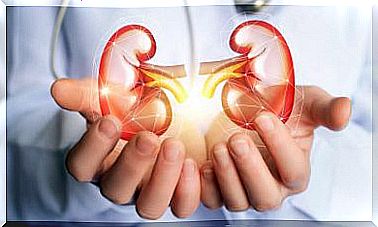What Is Psychological First Aid And How Can We Provide It?
None of us are free to live or witness catastrophes or traumatic situations. Therefore, it is extremely important that we have notions about psychological first aid.
Medical or physical first aid is the immediate care given to an injured person, until professional medical assistance arrives. They are done to prevent your condition from getting worse and your injuries from getting worse.
However, there are times that require immediate emotional support. In these moments it is necessary to guarantee the restoration of emotional stability and to facilitate the conditions for a continuous personal balance.
How do we know if we need psychological first aid?
Distressing moments affect each person differently, so we can encounter a wide range of reactions, feelings, and emotions.
Also, the severity of symptoms depends on many factors, both internal and external. Among others, it is worth highlighting the nature and scope of the event, previous experience, social support, physical health, age and culture.

So what is psychological first aid (PAP)?
Offering psychological first aid means providing emotional support in a practical way in crisis situations.
The set of actions carried out aims to make the person feel safe, connected with others, calm and hopeful, as well as to provide social, physical and emotional support.
In a case of psychological emergency, it is necessary to attend to the needs and concerns, listen to people, comfort them and guide them to access the information and social services they need.
What is NOT psychological first aid?
- They are not procedures that can only be provided by mental health professionals. PAPs can be applied by anyone who has been properly trained to do so. It is true that this task is ideally carried out by a professional, but unfortunately this is not always possible.
- Putting PAPs in place does not mean asking someone to analyze what has happened or to order events.
- It is not about discussing the details of the event that caused the distress.
- It is not about pressuring people to share their feelings and comment on their emotional reactions.

Goals of psychological first aid
The PAP is about emotionally supporting people who have suffered an emotional impact, given that they are in shock and trying to understand what happened.
The main objective pursued is to avoid suffering greater damage in this period and to calm the person as much as possible since, the more the tension increases, the more the damage can be aggravated.
When and where to apply
While people who have experienced trauma need professional help and support long after the event, PAPs focus on helping people in the immediate moment.
It is usually recommended that, since PAPs are a first response technique to a critical incident, they should be applied between the shock phase and the adaptation period; that is, from impact to 72 hours later.
Also, the place should be quiet enough and away from trauma-related issues. It is essential that you are away from the accident and that you ensure privacy and confidentiality at all times.
On the other hand, the ideal would be that there was a comfortable temperature, that it was well connected and had professional assistance. A nte all, security must prevail, comfort and privacy of the individuals concerned.
How are PAPs applied?
Next, let’s see, in broad strokes, how the experts in the field propose to do it:
1. How is security guaranteed?
- We will find a meeting place away from the stressful situation. We must avoid seeing, hearing, smelling or sensing anything related to the trauma.
- We will stabilize people who are disoriented or in shock .
- We will offer, always and above all, sincere and truthful information about the situation.
- We will not downplay what happened and we will not make false promises under any circumstances, as they will mistrust our empathic and understanding capacity.
- We will attend to the basic needs of food, drink, medical help, etc.
2. How is calm promoted?
- We will speak slowly, calmly and without fanfare. We must not dramatize.
- We will listen to people at their own pace, without forcing them to speak.
- We will be kind and understanding to people who are demanding, demanding, or irritating.
- In addition, we will provide information repeatedly and simply about where and how you get help.

3. How is social support facilitated?
- We will gather family members or support figures. In the case of children, the ideal would be for the families themselves to provide this help. But if not, it is very important to keep the family close as much as possible.
- We will help those affected to connect with support groups.
- We will respect cultural norms and traditions regarding gender, age, or family structure.
- We will offer religious assistance in its diversity, according to the needs of those affected.
4. How do you promote group self-efficacy and efficacy?
- We will encourage you to formulate the needs that are imposed at the time.
- We will support and encourage decision-making. We do not have to solve all the problems for the affected people, because that is how we invalidate them. You have to promote the recovery of control of part of your life.
- We will normalize the emotions, feelings and sensations that you are experiencing.
- We will promote, favor and support the initiatives of association or grouping of affected people.
We trust that these tips have helped you. It is common to hear about medical first aid, forgetting that the psychological part of an incident is also very important.
Hopefully you never have to apply them. But, if unfortunately you are forced to do it, at least you will know how to carry them out correctly. Remember that the most important thing is to listen to understand the needs of the other person and thus be able to help them.









